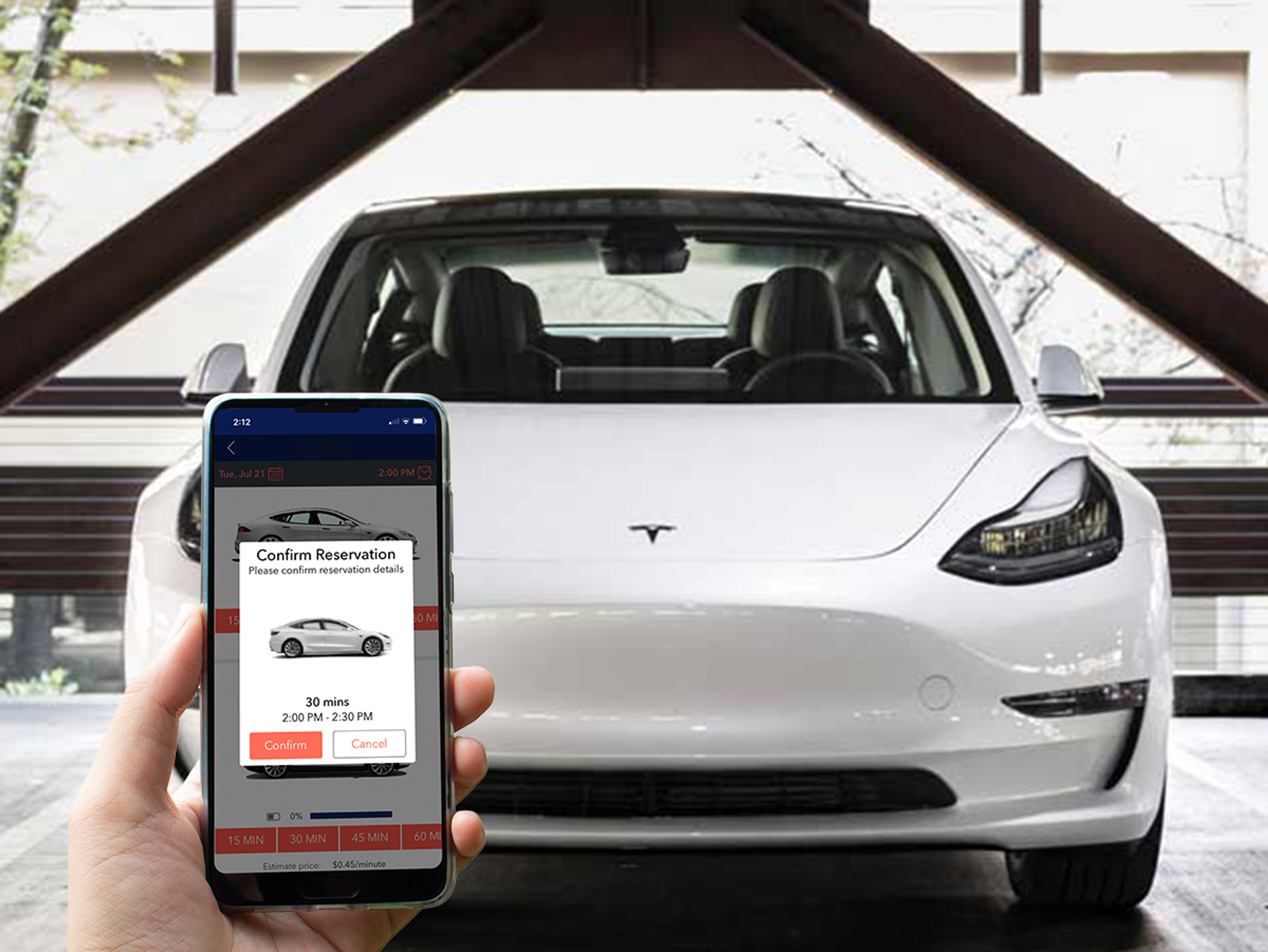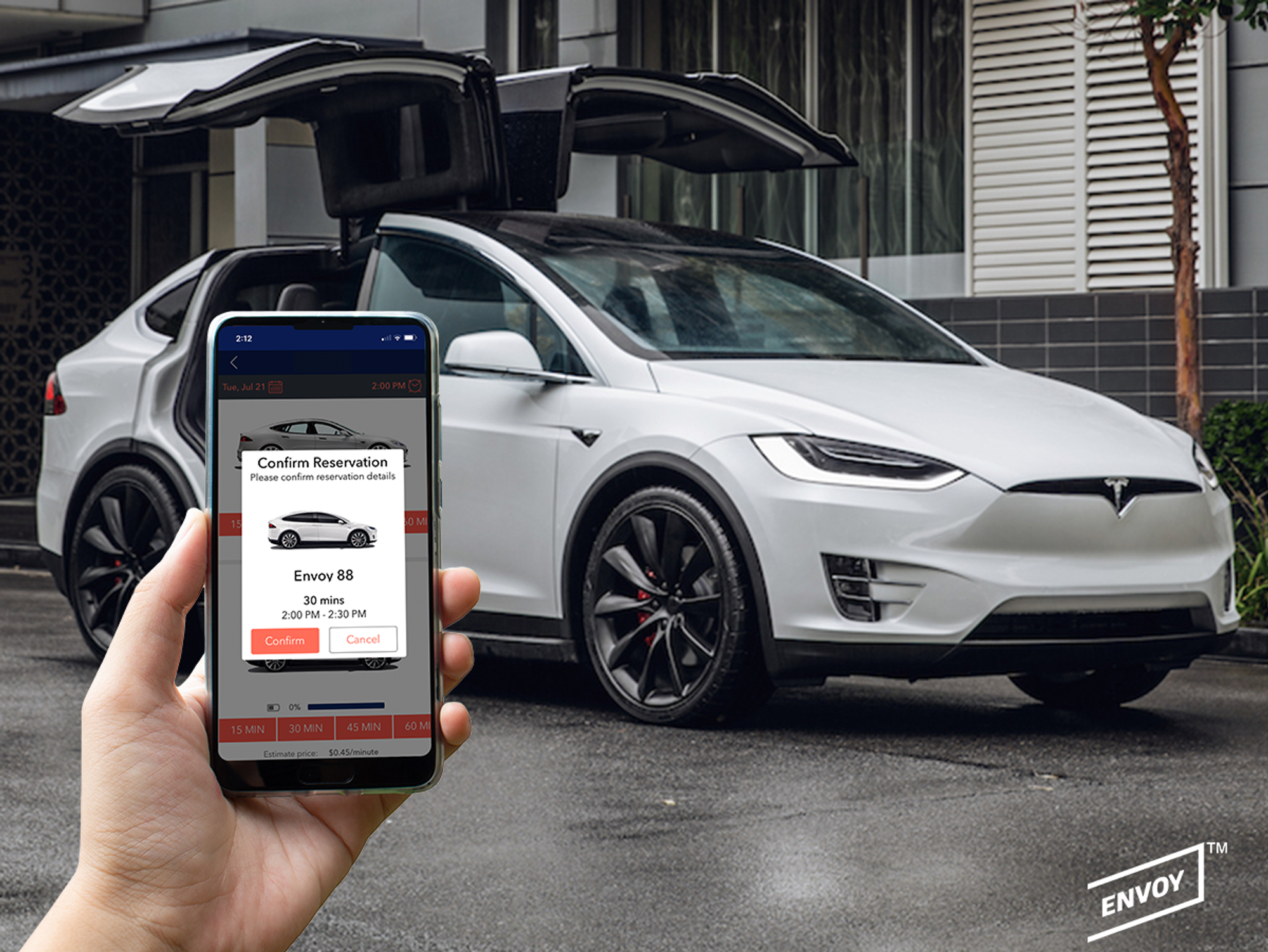Culver City-Based Envoy Gets $11M to Make Electric Cars an Apartment Perk
Francesca Billington is a freelance reporter. Prior to that, she was a general assignment reporter for dot.LA and has also reported for KCRW, the Santa Monica Daily Press and local publications in New Jersey. She graduated from Princeton in 2019 with a degree in anthropology.

The transportation tech company Envoy, which rents out electric cars to apartment buildings and offices, closed an $11 million Series A round on Thursday.
The boost represents just a fraction of a $81 million financing bundle that includes debt financing from Macquarie Specialized and asset finance to grow its fleet of Teslas and Chevy Bolts across the country.
The Culver City-based startup was founded in 2017 by two ex-real estate investors who saw a space to introduce mobility as new apartment amenity.
"You have a pool, you have a gym, now you have a car you can access," said co-founder and executive chairman Ori Sagie. His previous startups include an instant messaging platform he built in Israel, which sold to the online learning platform Smart Online. "Mobility will become an amenity in every building, like a laundry room."
Sagie said the startup supplies 27 of the top 50 real estate companies with cars and charging stations exclusively reserved for their residents.
Envoy also works with developers looking to downsize parking structures, said co-founder and CEO Aric Ohana, who previously worked in property tech. He said that every shared vehicle takes about 10 cars off the road.
In 2016, he and Sagie were working on a student housing development in Arlington, Texas when they noticed a disconnect between apartment amenities tenants said they wanted and the ones developers were building.
Their model lets apartment tenants or employees at work access their community car through an app that charges them a fee of 15 to 45 cents per minute. Envoy charges real estate companies an initial fee for each vehicle. Typically, it deploys one car for every 100 apartment units.
Unlike on-demand rental companies like Zipcar, Envoy's model doesn't let just anyone pick up a set of keys and borrow a car for the day.
Their fleet of purchased cars currently stands at 200, but the company has hopes of reaching 1,000 in 12 to 14 months, Ohana said.
Envoy has cars deployed in 10 states including L.A., Seattle, D.C. and Las Vegas. And their clients include drivers of delivery services to families that need transportation to buy groceries, "all the way to people who go to the Hamptons for the weekend," said Sagie.
As the pandemic keeps many working from home, Ohana says he's noticed more families that previously owned two cars are downsizing. Some don't need a car at all.
"There's no question that personal car ownership will continue for a long time, but we are helping communities get rid of cars. It helps people not renew a lease on a car or not buy a new car," he said. "Uber and Lyft obviously did a great job previously, showing us we might not need to own a car. But the issue is, it wasn't as affordable."
The startup has seen a surge in usage by clients since April. And 73% of users said they hadn't tried driving electric before Envoy, according to an internal company survey published in April.
With the raise, Sagie said the company will look to expand its fleet in more cities. That also means offering the service to people without affordable access to transportation.
They've already distributed 30 electric cars in 15 disadvantaged communities across Sacramento with a $1 million grant from the California Energy Commission in 2018. With a second grant from the Los Angeles Clean Incubator, they deployed two Nissan Leafs in both San Pedro and Pacoima, where cars are charged by solar panels.
Tenants in those areas pay the lowest rate per minute, Sagie said.
Thursday's round was led by Shell Ventures and Building Ventures and backed by DENSO, Goodyear Ventures, GroundBreak Ventures and the Los Angeles Cleantech Incubator Impact Fund.
**This story has been updated to reflect that Envoy's co-founders were former real estate investors, not agents.
Francesca Billington is a freelance reporter. Prior to that, she was a general assignment reporter for dot.LA and has also reported for KCRW, the Santa Monica Daily Press and local publications in New Jersey. She graduated from Princeton in 2019 with a degree in anthropology.






 Image Source: Skyryse
Image Source: Skyryse